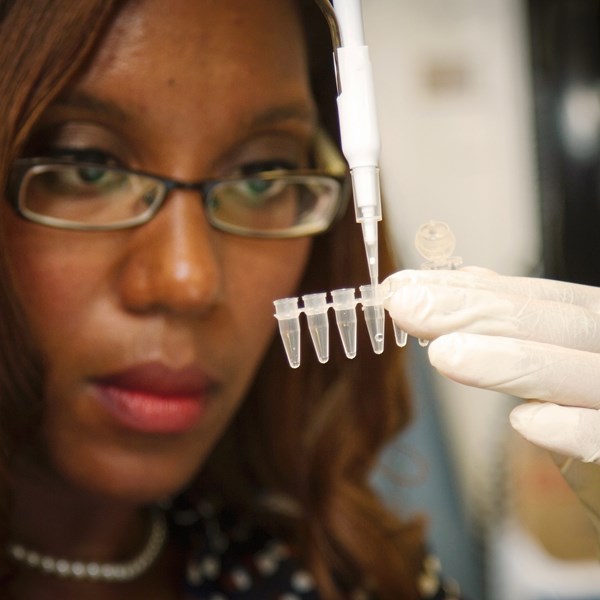The AG Opinion in Mylan vs Gilead provides useful guidance as to when parties may obtain “appropriate compensation” from rights holders for wrongly granted interim measures.
The pro-rights holder opinion has highlighted the potential pitfalls of launching at risk, even when wrongly injuncted parties’ activities are found to be non-infringing.
GILEAD SCIS., INC. V. MYLAN INC: AN OVERVIEW
“Launching at risk”, a common strategy in the pharmaceutical industry where competitors commercialise generic products before the expiry of corresponding patents, maybe an even more risky strategy for generics manufacturers (and in other comparable situations where rights holders may readily obtain interim measures) following the AG’s opinion in Mylan AB v Gilead Sciences Finland Oy and others (Case C-473/22) (Mylan) and the CJEU’s earlier decision in Bayer Pharma (C‑688/17, EU:C:2019:722) (Bayer).
Following the decision in Bayer, and if the CJEU agrees with the AG’s opinion in Mylan, injuncted parties who have launched at risk may find it very difficult, practically speaking, to recover appropriate compensation for wrongly granted interim measures in EU member state courts, even when their actions are later found by the courts to be non-infringing.
But it isn’t only potential infringers who need to be cautious.
All the circumstances of a case (including both parties’ conduct) are relevant in assessing whether appropriate compensation is payable to ‘wrongly’ injuncted parties, and for determining how much. If rights holders behave badly, seek interim measures that hinder legitimate trade, are abusive, disproportionate, or unjustifiable, it is more likely they’ll need to pay.
WHAT DOES "LAUNCH AT RISK" MEAN?
“Launching at risk” usually occurs when a competitor launches a generic pharmaceutical product before the expiry of a patent or SPC, or when it considers those rights to be vulnerable.
Such a strategy can offer a significant competitive advantage, giving the party who launches at risk an opportunity to gain market share before other generic manufacturers can move into that space.
That advantage, however, comes with the inherent “risk” of financial loss and failure to make a return on investment. IP rights holders may initiate infringement proceedings, often seeking interim injunctions to prevent the premature marketing and sale of generic products. Such activity often corresponds with the tail end of a patent’s life. This is commonly the most commercially valuable period from a patentee’s perspective.
IS IT JUST POTENTIAL INFRINGERS WHO ARE AT RISK IN A "LAUNCH AT RISK" SCENARIO?
The risk in a “launch at risk” scenario is not one-sided.
Patent owners who seek to enforce their rights, commonly in the face of irreparable harm, are exposed to having those rights invalidated, and any interim measures (e.g. interim injunctions) based on those rights overturned.
In such situations, International, EU, and domestic Law all provide protection to parties who have been wrongly restrained, enabling such injured parties to seek “appropriate compensation” for harm caused.
What is “appropriate compensation” and when is it available? Guidance from the Bayer and Mylan cases.
The Court of Justice of the European Union (CJEU) considered this question in Bayer (2019) and it was revisited in the AG Opinion in Mylan (September 2023).
BAYER
Bayer owned patents for contraceptive drugs and obtained interim injunctions in the Hungarian courts to prevent Richter Gedeon and Exeltis from distributing generic equivalents. Bayer’s patent was later invalidated, and the interim injunctions were lifted. Richter Gedeon and Exeltis sought appropriate compensation.
The CJEU considered when appropriate compensation should be awarded for ‘wrongly’ granted interim measures. It found:
- For an injuncted party to obtain “appropriate compensation”, the rights holder’s interim measure against that party must be overturned. This may be for reasons including non-infringement, or invalidity of the IP right on which the interim measure was based. However, this doesn’t automatically guarantee that compensation will be awarded. Such an outcome is necessary, but not sufficient.
- All the circumstances of a case, including the parties’ behaviour, are relevant to assessing whether to award appropriate compensation for ‘wrongly’ granted interim measures and how much.
- Critically, interim measures must be “unjustified” for appropriate compensation to be awarded, meaning that the injuncted party’s actions posed no risk of irreparable harm to the rights holder at the time the interim measure was granted. However, the CJEU also found that launching at risk, by its nature, presents a risk of irreparable harm. This means that rights holders will almost always be able to show that there was a risk of irreparable harm as at the date of the assessment, making it extremely difficult for restrained parties to demonstrate that interim measures were unjustified in “launch at risk” scenarios.
WHAT SPECIFICALLY HAVE WE LEARNED FROM MYLAN VS GILEAD?
The question of when to award “appropriate compensation” and the decision in Bayer were considered further in the AG’s Opinion in Mylan, this time in an SPC context.
In Mylan, Gilead had an SPC for antiretroviral medication, and Mylan ‘launched at risk’ before its expiry. Gilead obtained an interim injunction, but the SPC was later invalidated, and Mylan sought appropriate compensation. The Finnish court referred the question of appropriate compensation to the CJEU, against the background of its strict liability regime which, absent Bayer, would automatically entitle Mylan to compensation.
The AG in Mylan followed the decision in Bayer, opining that:
- Factors determining whether interim measures are “justified” and appropriate compensation is payable include:
- the right holder’s conduct regarding maintenance, extension, and renewal of interim measures;
- how the dispute unfolds between the parties;
- the proportionality of the measures;
- whether the measures create barriers to legitimate trade;
- whether the measures are abusive (and that abusive measures should automatically trigger compensation).
- Interim measures may be considered “justified” at the time they are granted even if they are later invalidated or if the wrongly injuncted party is found not to have infringed.
- EU member states who have ‘strict liability’ regimes (e.g. Spain, Sweden, and Finland) for appropriate compensation (i.e. where compensation is awarded by default for wrongly granted interim measures, irrespective of the circumstances of the case) are not compatible with Bayer or EU law.
POTTER CLARKSON'S PHARMA SPECIALISTS' CONCLUSION ON MYLAN VS GILEAD
The pro-rights holder decisions in Bayer and, if followed by the CJEU, Mylan suggests that in many cases, “wrongly” injuncted parties who have “launched at risk” will be excluded from obtaining “appropriate compensation” even though interim measures against them are later overturned, or if their conduct is found to be non-infringing.
If the AG’s opinion is followed, EU member states (some of which have incompatible regimes which contemplate strict liability in such circumstances) are likely to revisit their interpretation of ‘appropriate compensation’.
In the meantime, the level of risk associated with ‘launching at risk’ may remain largely unchanged in the UK, which is no longer bound by the CJEU following Brexit. UK courts typically grant interim measures subject to rights holders undertaking to compensate injuncted parties for loss in the event the interim measures are overturned.
Over time, this could position the UK as favourable market for generics manufacturers seeking to obtain market share before the expiry of the relevant IP rights.






